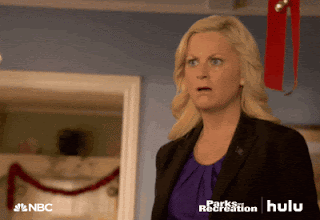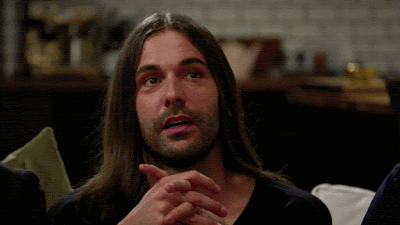 |
| via |
 I've been trying to get more in touch with my ancestry (mostly British, according to my DNA), and this quote from the blogger who got me excited about sprang and nålbinding really speaks to me. "...objects are not just passively handed along, they have agency, extending the artist’s (or artisan’s) reach across distance and time. People take action through the things they create, this way distributing their personhood." (Apparently she's summarizing Alfred Gell's theory of "distributed personhood.") That also puts me in mind about what Goldie Goldbloom said when I asked her about a chapter in her latest book. She said that we are the products of our family history and the memories of our ancestors. This is exactly the sort of thing that's happening in Ghost Wall. Silvie's father is very interested in the British Iron Age, and drags his wife and daughter around England, walking the entirety of Hadrian's Wall, lecturing about their ancestors. For him, it's partly based on a racist pursuit of proving his own white ancestry. "...they had their horses and swords as well, didn't they, put up quite a fight and after all send them packing in the end, there weren't dark faces in these parts for nigh on two millennia after that, were there?" They've joined a professor and his students who are practicing immersive learning, and living something like Iron Age people for a few weeks - wearing handmade tunics, leather moccasins, foraging and eating over a fire. Silvie's dad's along because he's a talented outdoorsman. He's also violent and abusive to his wife and daughter. The other campers notice, but are slow or unable to react. What's interesting in Ghost Wall is just what that blogger and Goldie Goldbloom said - what characteristics are deep in these people's psyches, tied to their ancestors? This inheritance of violence and the inheritance of meekness are tragic gifts for Silvie's family. Like a bog sacrifice, she and her mother bear abuse quietly.
I've been trying to get more in touch with my ancestry (mostly British, according to my DNA), and this quote from the blogger who got me excited about sprang and nålbinding really speaks to me. "...objects are not just passively handed along, they have agency, extending the artist’s (or artisan’s) reach across distance and time. People take action through the things they create, this way distributing their personhood." (Apparently she's summarizing Alfred Gell's theory of "distributed personhood.") That also puts me in mind about what Goldie Goldbloom said when I asked her about a chapter in her latest book. She said that we are the products of our family history and the memories of our ancestors. This is exactly the sort of thing that's happening in Ghost Wall. Silvie's father is very interested in the British Iron Age, and drags his wife and daughter around England, walking the entirety of Hadrian's Wall, lecturing about their ancestors. For him, it's partly based on a racist pursuit of proving his own white ancestry. "...they had their horses and swords as well, didn't they, put up quite a fight and after all send them packing in the end, there weren't dark faces in these parts for nigh on two millennia after that, were there?" They've joined a professor and his students who are practicing immersive learning, and living something like Iron Age people for a few weeks - wearing handmade tunics, leather moccasins, foraging and eating over a fire. Silvie's dad's along because he's a talented outdoorsman. He's also violent and abusive to his wife and daughter. The other campers notice, but are slow or unable to react. What's interesting in Ghost Wall is just what that blogger and Goldie Goldbloom said - what characteristics are deep in these people's psyches, tied to their ancestors? This inheritance of violence and the inheritance of meekness are tragic gifts for Silvie's family. Like a bog sacrifice, she and her mother bear abuse quietly. Ghost Wall is a quick read, excellent prose and truly heart-thumping story. I'm excited to read more by Sarah Moss. Thanks, Phoebe!





































